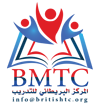Marine Pollution and Management
Why Choose this Training Course?
Marine pollution prevention these days is a serious responsibility for everyone involved in the maritime or offshore industries. This includes offshore and onshore energy production sector, on-shore shipping personnel and shipping transport companies. They all have to fulfil the important duty to protect the marine environment.
This course provides updated information and the knowledge of various aspects of marine pollution and the ways and methods of its prevention. The course will present the detailed analysis of various sources of pollution, best practices and methodologies for pollution clean-up and the measures as a response to emergencies and accidents. The course also includes explanation of marine pollution legal consequences and liabilities.
The course will feature:
- Marine pollution causes and effects
- Ballast water and other marine pollutants
- Oil pollution and offshore activities
- Surveillance, monitoring, measurement and management systems
- Legal issues, non-compliance with international regulations
What are the Goals?
By the end of this course, participants will be able to:
- Understand numerous aspects of the marine pollution problems.
- Develop familiarity with regulations & compliance issues according to requirements of international documents.
- Use available technologies & strategies for marine pollution prevention.
- Plan & implement measures aimed at reducing the risk of serious environmental impact.
Who is this Training Course for?
This course is designed to benefit different levels of Technical and Administrative Personnel in the industry and government who deal with and manage problems of marine pollution, marine transport and offshore energy production operations:
- Managers and environment supervisors from oil and gas production industry
- Professionals from oil and gas transport companies
- Administrators from government departments dealing with maritime transport and offshore operations
- Technical professionals in charge of harbour operation & management
How will this Training Course be Presented?
This course will be conducted along workshop principles which will combine lectures with active delegate participation including problem solving and discussions. Several practical examples will be presented, and the focus will be on technical principles and clear technical reasoning.
Workshops will include case studies and will be presented with explanation of technical measures necessary for efficient managing of marine pollution problems. Various examples from real-life technical practice will be included and combined with video animations to help gain the confidence in making right decision regarding efficient emergency response measures in the given situation.
The Course Content
Day One: Marine Pollution
- Marine pollution definition: types and environmental impacts
- Oil pollution and impact of oil spill
- Heavy metals: dangers and hazards
- Wastes: solid garbage and liquid sewage
- Pollution risks from ships : incidents and assessment
- Economic losses from marine pollution
Day Two: Ballast Water and Other Marine Pollutants
- Environmental threats from ballast water
- International maritime dangerous goods (IMDG)
- Dumping of ship wastes and other materials
- Bilge water / waste oil operational management
- Ship scrapping and recycling
- Waste management operations
Day Three: Methods of Surveillance
- International Bodies: IMP, MEPC, MARPOL
- Objectives of surveying marine resources
- Planning considerations: sites, stations and samples
- Sample size and number, statistical requirements
- Analysis tools and techniques
- Compatibility of survey methodologies
Day Four: Management Systems
- ISO 14000 series and environmental management
- Contingency planning and emergency management
- Marine pollution preparedness and response
- Methods of intervention and clean-up technologies
- Port reception facilities according to IMO
- Human element: training and certification
Day Five: Legal Issues, Liability and Insurance
- Criminal liability of persons involved: crew, ship-owner, charterer
- Accident investigation and surveys
- Claims: International Oil Pollution Compensation (IOPC) Funds
- United Nations Convention on Law of Sea (UNCLOS)
- Small Tanker Oil Pollution Indemnification Agreement (STOPIA)
- Tanker Oil Pollution Indemnification Agreement (TOPIA)

